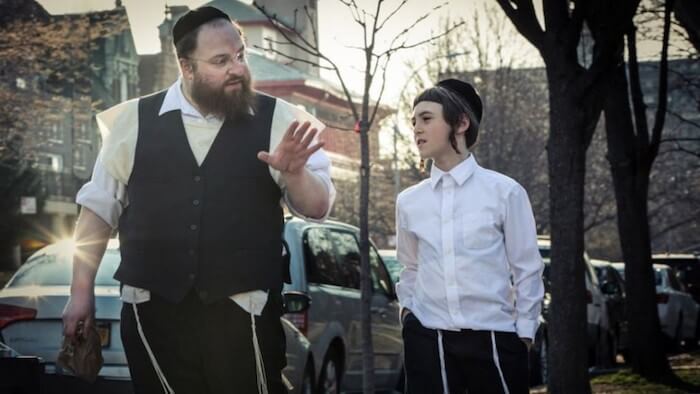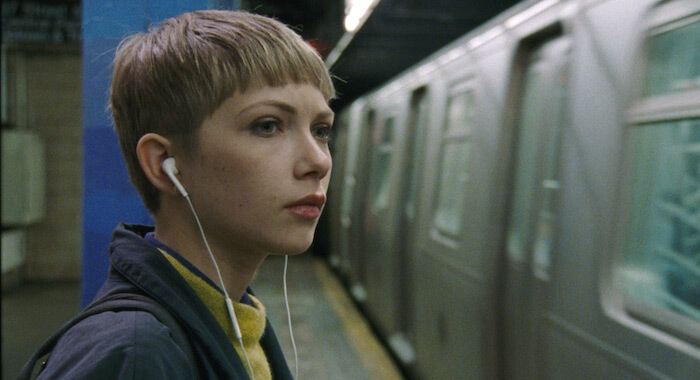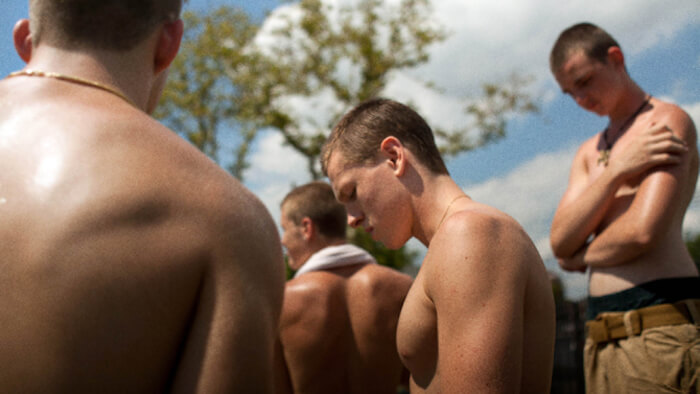Brooklyn Goes to Sundance (Again)
Like any other Sundance, you can’t throw a stone in Park City this year without hitting someone who lives in Brooklyn. But it is not just on the overrun resort town’s streets that Kings County is all up in your grill. Brooklyn always seems to be overrepresented on Sundance’s screens, but never as much as this year, when two different films at Sundance are named after Brooklyn neighborhoods alone. I haven’t seen Cary Murnion’s not-as-preposterous-as-it-used-to-sound thriller Bushwick, in which a second Civil War breaks out and suddenly Texans are invading Northside, or Matt Ruskin’s racially fraught miscarriage of justice period piece Crown Heights, which just had its world premiere. Still, if they are any indication, Brooklyn owns Sundance 2017.

I have however seen Menashe, Joshua Weinstein’s delicate look at the life of a wayward ultra-Orthodox grocery store clerk, which also premiered this weekend. I can attest that it is the most authentic look at Brooklyn Hasidim which American independent cinema has yet produced (no disrespect to A Price Above Rubies and Holy Rollers, but competition is hard to find). Performed in Yiddish by a cast of capable non-actors, the film’s fairly flat drama won’t engage everyone but as as aspects of its often pathetic title character’s tragic family life emerge and his struggles as a single father escalate, the film earns him, and itself, some hard-won empathy. In the annals of Brooklyn grocery clerk movies, See You Next Tuesday still stands above, but Weinstein’s accomplishment is no small one here; he isn’t ultra-Orthodox and yet Menashe feels like a credible insider’s point of view on a community the American movies rarely glimpse.


Dustin Guy Defa’s Person to Person, a standout from Sundance 2014, is my favorite short of the decade. I show it to my film students frequently and will always hold it close to my heart for introducing me to Helene Smith, whose soulful Miami crooning, for the shoulda been legendary Deep City Records, has soothed my sad, broken heart on many a long, lonely night. Defa’s second feature is an expansion of the short, one which is, despite the presence of luminaries like Philip Baker Hall and future luminaries like Michael Cera, imbued with the same throwback 16mm textures and score of obscure oldies enlivening a shaggy dog comedic narrative that the earlier film pulled off winningly. Back too is Bene Coopersmith, the star of the short, essentially reprising the same role as a record geek who is prone to conflicts that drift toward the absurd. The film delivers more or less what I expected, but it didn’t deepen the profound, profoundly comic melancholy that existed in its shorter incarnation. That doesn’t mean the breezily distracting ensemble piece isn’t fun or worth a watch. It’s both. It just doesn’t add up to a whole lot and never much expects to.


Most impressive of this new crop of Sundance approved Brooklyn indies is Eliza Hittman’s Beach Rats, which also premiered on Monday night, making it the night Sundance finally dropped dead, felled at thirty-three by a Brooklyn overdose. Frankie is a lanky, aimless dreamboat with Sinatra eyes flitting away the summer on stoops and in front of bodegas with his homies. When the cutest brunette on his block, in the furthest, seaside reaches of Brooklyn, comes on to him, its presents a dilemma; he’s gay but, in the hyper-masculinist slice of working class white outerboroughdom he calls home, that’s a no-no. Prowling gay hook up sites on the sly as he begins his furtive, nascent attempts at cruising, Frankie’s “he’s not gonna come out, is he” drama generates plenty of tension, like Hittman’s earliest film It Felt Like Love, by slowing pushing its character toward a terrible sexual reckoning we sense they are not prepared for. While Beach Rats lacks the austere beauty Sean Porter brought to the earlier film and shirks from depicting the most devastating consequences of its climax (one which recalls Ira Sachs’s underrated The Delta), stars Harris Dickinson and Madeleine Weinstein hold their own in Hittman’s brave drama.
You might also like 




















